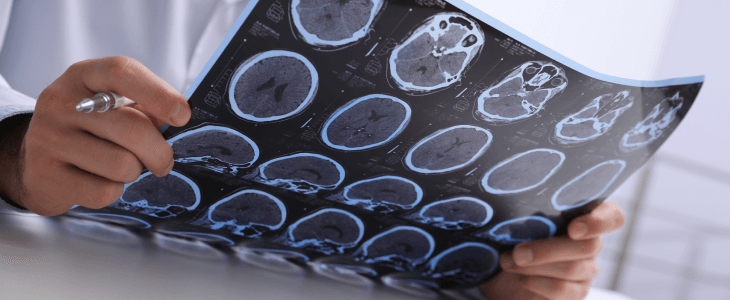A traumatic brain injury is one of the most serious injuries an individual can suffer. Common causes of traumatic brain injuries include motor vehicle crashes, firearms-related accidents, and assaults. Unfortunately, traumatic brain injuries can have a number of long-term effects. In this article, we examine the long-term effects of traumatic brain injuries.
Long-Term Physical Effects of Traumatic Brain Injuries
Cognitive effects: Cognitive effects are one of many long-term physical effects of traumatic brain injuries. Common cognitive effects include difficulty concentrating, difficulty processing language, impulsiveness, distractibility, and confusion.
Physical effects: There are several long-term physical effects that can result from traumatic brain injuries. These effects include seizures, chronic pain, difficulty swallowing, sleep disorders, physical paralysis, loss of stamina, hormonal changes, and difficulty regulating body temperature.
Hearing issues: Hearing issues are another common long-term effect of traumatic brain injuries. For example, some victims suffer an intolerance or increased sensitivity to certain sounds.
Vision effects: Traumatic brain injuries can also cause long-term vision problems, including vision loss, blurred vision, involuntary eye movements, diplopia, and problems judging distance.
Language and speech effects: Traumatic brain injury victims also often suffer long-term language and speech effects, including slurred speech, reading comprehension problems, and rapid or slow speech.
Behavioral and emotional effects: Behavioral and emotional issues are another common physical effect of traumatic brain injuries. Common problems include aggression, lack of motivation, depression, fluctuating emotions, and irritability.
Sensory effects: Finally, many victims of traumatic brain injuries suffer sensory effects, including difficulty perceiving temperature, difficulty positioning their extremities, difficulty distinguishes between pressure and touch sensations, and general difficulty understanding information received through their five senses.
Additional Consequences of Traumatic Brain Injuries
In addition to physical effects, there are several other consequences of traumatic brain injuries, including:
Inability to work: Traumatic brain injuries can prevent victims from being able to return to work, particularly for jobs that require a significant amount of mental and physical effort. In addition, this type of injury can prevent victims from obtaining new employment in the future.
Inability to live independently: Traumatic brain injury victims who experience changes to their cognitive function, mobility, and communication skills may be unable to live on their own.
Future development of life-altering conditions: Traumatic brain injuries can also increase the likelihood of the development of certain types of conditions, including dementia, Alzheimer’s disease, and Parkinson’s disease.
Psychological distress: Finally, psychological distress is a common consequences of a traumatic brain injury. Although the degree of distress varies, extreme cases can greatly interfere with victims’ lives.
Contact a Long Island Personal Injury Lawyer
If you or a loved one have suffered a traumatic brain injury in New York, Dell & Dean, PLLC, is on your side. When you come to us for assistance with your personal injury case, we will provide you with dependable and aggressive representation, doing everything we can to obtain financial compensation on your behalf. Please contact us to arrange an initial meeting with a personal injury lawyer.

